A frequent question before I left was; What will it be like to work on a large international expedition? There is so much to say in this regard. A neat symbol of the expedition and continual reminder of our international group was the flagpole beside the office and lab. Once all the country colors were raised, It was interesting to see the number of times when crew members or scientists in camp would stop and pause for a moment as they looked at the colors!
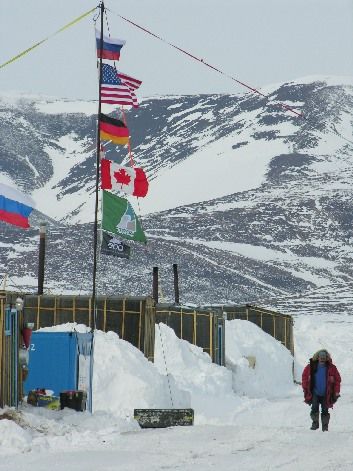 The international expedition flags extend in the arctic wind at Camp El'gygytgyn
The international expedition flags extend in the arctic wind at Camp El'gygytgyn
Another fun example of the mix of culture was visible in the foot ware. This was particularly noticeable in Pevek before we went to the lake. I was amazed at how the local residents navigate icy streets and stairs while wearing stylish boots and shoes.
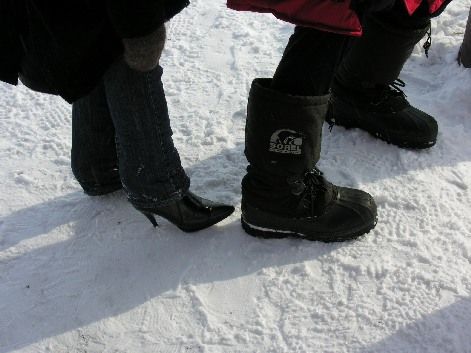 Contrast in style, one boot belongs to Julie Brigham-Grette, the other to Rita, our Pevek translator.
Contrast in style, one boot belongs to Julie Brigham-Grette, the other to Rita, our Pevek translator.
Listening to conversations on the rig, in the office, or kitchen was also fun. Many times, it was easy to hear English, German and Russian all at the same time!
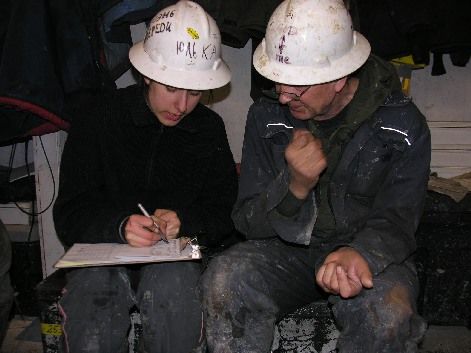 Although the official expedition language was English, here, Julia gives Pavel a lesson in German.
Although the official expedition language was English, here, Julia gives Pavel a lesson in German.
The drillers were among those for whom communication was of utmost importance. It was fascinating to watch John and Roman, American and Russian drillers, communicating. Because of the noise of the drill rig, no spoken language worked well. They quickly established a symbolic and gesture language that allowed them to communicate without spoken word.
The equipment and tool bench was another ever present reminder of our language diversity.
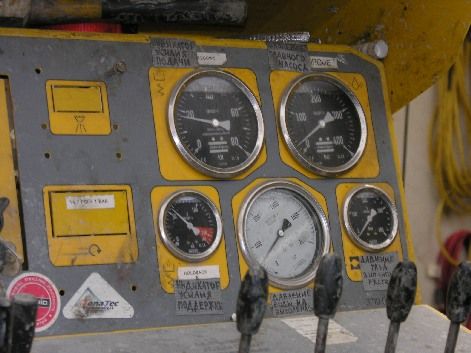 Gauges on the drill rig are labeled in both English and Russian
Gauges on the drill rig are labeled in both English and Russian
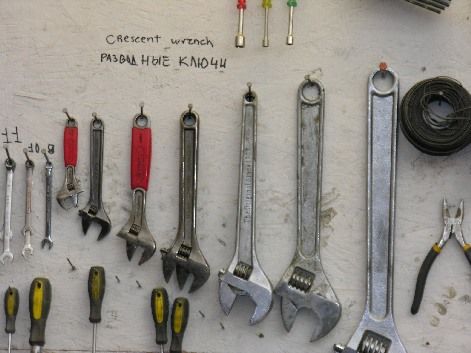 The tool wall above the rig work-bench labeled in English and Russian
The tool wall above the rig work-bench labeled in English and Russian
Of course it does not matter in Russian, German or English, some things don't need translation! All recognize that a hammer can be used to accomplish all sorts of tasks.
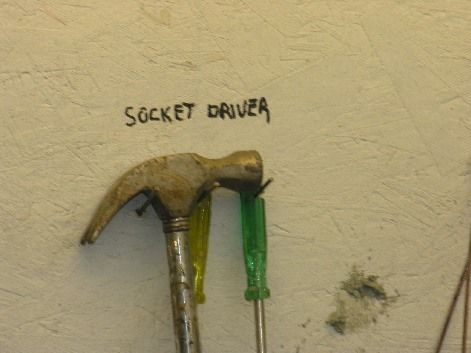 Some things translate in any language!
Some things translate in any language!
Although I wished I knew more Russian and German, and I am sure may of the others wish they had a better command of English, I will never forget some of our times of sharing... I was so glad to have many pictures from home and travels on my laptop. With maps, we could learn where each other lived.
Through pictures, I was able to share a little of my family, friends, school and hobbies with my new found friends. Hard work, smiles and laughter go a long way towards building positive relationships. Speciba and Pachalsta, Danka and Bitte, Thank-you and You're welcome, were learned by all.
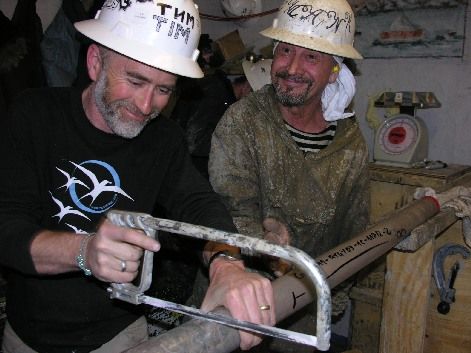 In spite of language differences; hard work, humor and smiles don’t need translation.
In spite of language differences; hard work, humor and smiles don’t need translation.
Note from today in Pevek:
After taking some time to walk around town with some of the others in our group, I got word that it would be possible to visit the Pevek School again.
Rita, our Pevek translator, made arrangements with the English teacher for me to talk with some of the advanced English students and their teachers after the school day ended at 2:15. Julia and I went to the school and we spoke a little about where we were from and what we did down at Lake E. Mostly we answered questions from students. Considering that the English teacher had never been to the UK or US, I was amazed at her and her students' command of the English language.
Once again, I felt at home in front of a classroom full of students.
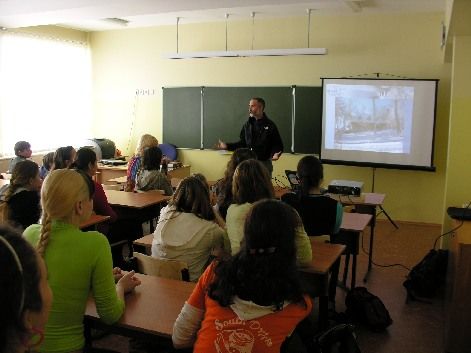 T-Mart, at home in the classroom
T-Mart, at home in the classroom
T-Mart... staying warm in Siberia

